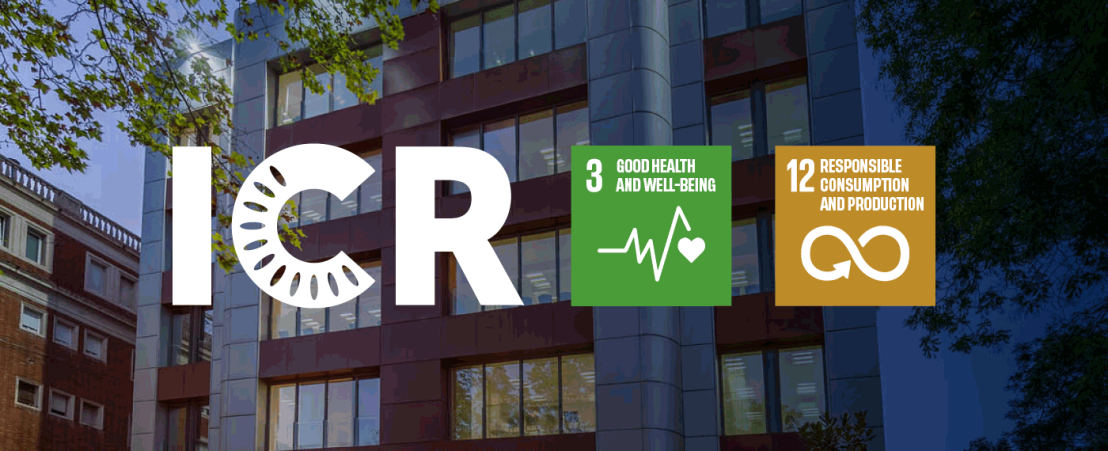
ICR is based on integrity and responsibility and it is predomained by principles of righteousness, professional ethics, honesty and honorability. Moreover, we have a compromise with social development and the environment.
At Institut Català de Retina – ICR we understand social responsibility as a way of leading, a compromise with the way we handle the impacts of our medical activity upon our patients, clients, workers, local communities, the environment and society in general. Our plan of action is guided by this way of doing and by our values as an entity.
In order to implement our social responsibility strategy, we have taken as a reference the Sustainable Development Goals defined by the United Nations and have consensually selected those considered our priorities for the upcoming years.
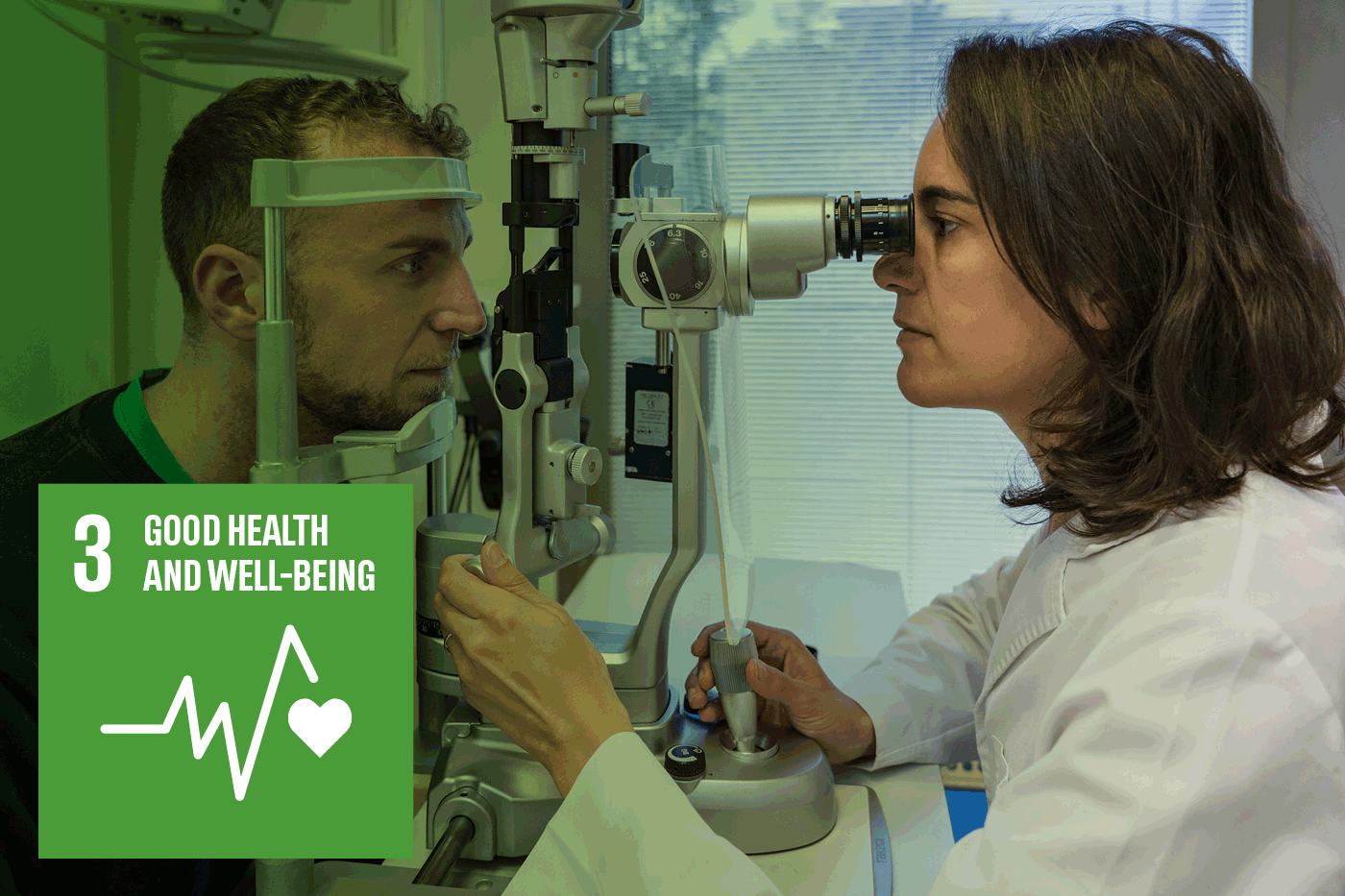

Institut Català de Retina – ICR is an ophthalmologic, medical and surgical center with more than 35 years of experience in Barcelona and Terrassa. Its main goal is the prevention, diagnosis, treatment and control of diseases in the eye, the visual sistem and ocular annexes.

We work on the training and awareness around eye health. On the one hand, Institut Català de Retina – ICR regularly organizes training sessions on different aspects related to eye health, both for employees and external organizations, so that professionals can offer better diagnoses and treatments to patients.
On the other hand, through our external communication channels (newsletter, website, social media…), we disseminate information about the different pathologies, symptoms, treatments and prevention for our patients, employees and any interested person or entity, in order to raise awareness of the importance of eye health and to help prevent eye diseases.
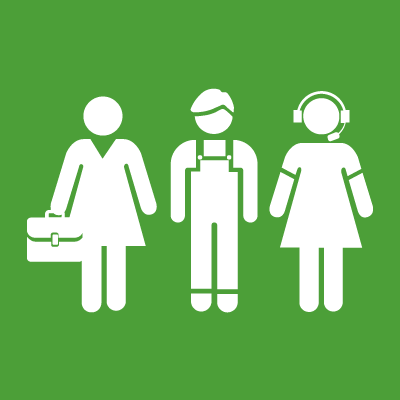
Internally, at ICR we take care of prevention and health promotion through regular medical check-ups for our employees, as well as offering easy routes to the prevention and treatment of visual health, both for internal staff and their families.
We have recently held the Week of Health and Well-being, an initiative that offers health-related activities to all ICR employees. The activities are optional and aim to promote the adoption of healthy practices for the physical and emotional well-being of people in the workplace. They also aim to foster communication and team cohesion.

In 2006 Institut Català de Retina created the Research Department with highly experienced personnel. This department promotes, provides tools and guides rigurous and maximum quality research in the ophthalmology field.
Clinical research projects that are currently being developed are assessing state of the art diagnostic technologies and the latest medical and surgical treatments for ophthalmologic pathologies.
Participation in research projects, both national and international, allows us the use of the most advanced technology and the most recent treatments.
Institut Català de Retina – ICR has a Research Commission that reviews and evaluates each of the clinical trials and studies that may be conducted at the institution. The Research Commission decides which of them meet the requirements of interest, scientific innovation and respect for ethical principles, and only those that meet these requirements are accepted and executed.
All projects are also evaluated by the Research Ethics Committee (IRB), an independent ICR organism, which ensures the protection of patients participating in these studies and trials. Without the prior approval of the IRB, a study or trial cannot be conducted.
ICR is a member of Evicr.net (European Vision Institute for Clinical Research network), of which some 100 institutions throughout Europe are members. All EVICR centers share rigorous and demanding procedures for conducting clinical studies and trials.
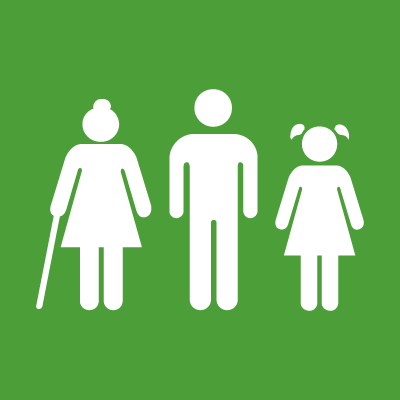
Institut Català de Retina – ICR has a firm compromise with social causes and collaborates with several non-profit organizations, especially with the Ramon Martí i Bonet Foundation, created by Dr. Ramon Martí i Bonet, founder of Institut Català de Retina.
The main goal of the Foundation is to improve eye health and therefore future perspectives of people in situation of vulnerability, both in Catalonia and in developing countries.
We promote the hiring, development and preventive training of health personnel in developing countries.
In addition to its own staff and a large team of volunteers, the Foundation relies on the collaboration of ICR to carry out its projects.
From the beginning of the Foundation until today, more than 3,350 surgeries have been performed free of charge for people in vulnerable situations in India and Chad. In order to continue offering this service, we invest in the training of professionals from developing countries with the aim of enabling them to practice ophthalmology independently.
In 2023 we started the telemedicine service with Le Bon Samaritain Hospital in Chad, so that professionals of Institut Català de Retina – ICR can diagnose some ocular pathologies in patients of the hospital. At the same time, we trained the teams of this health center.
The Ramon Martí i Bonet Foundation, together with the Vicente Ferrer Foundation, has another program called Early Intervention , which includes activities such as training courses on prematurity and visits to children under 3 years of age to detect possible ocular difficulties and cases of preventable childhood blindness. More than 1,320 people have participated in the training courses.
Other collabotations of Institut Català de Retina with non-profit organizations:
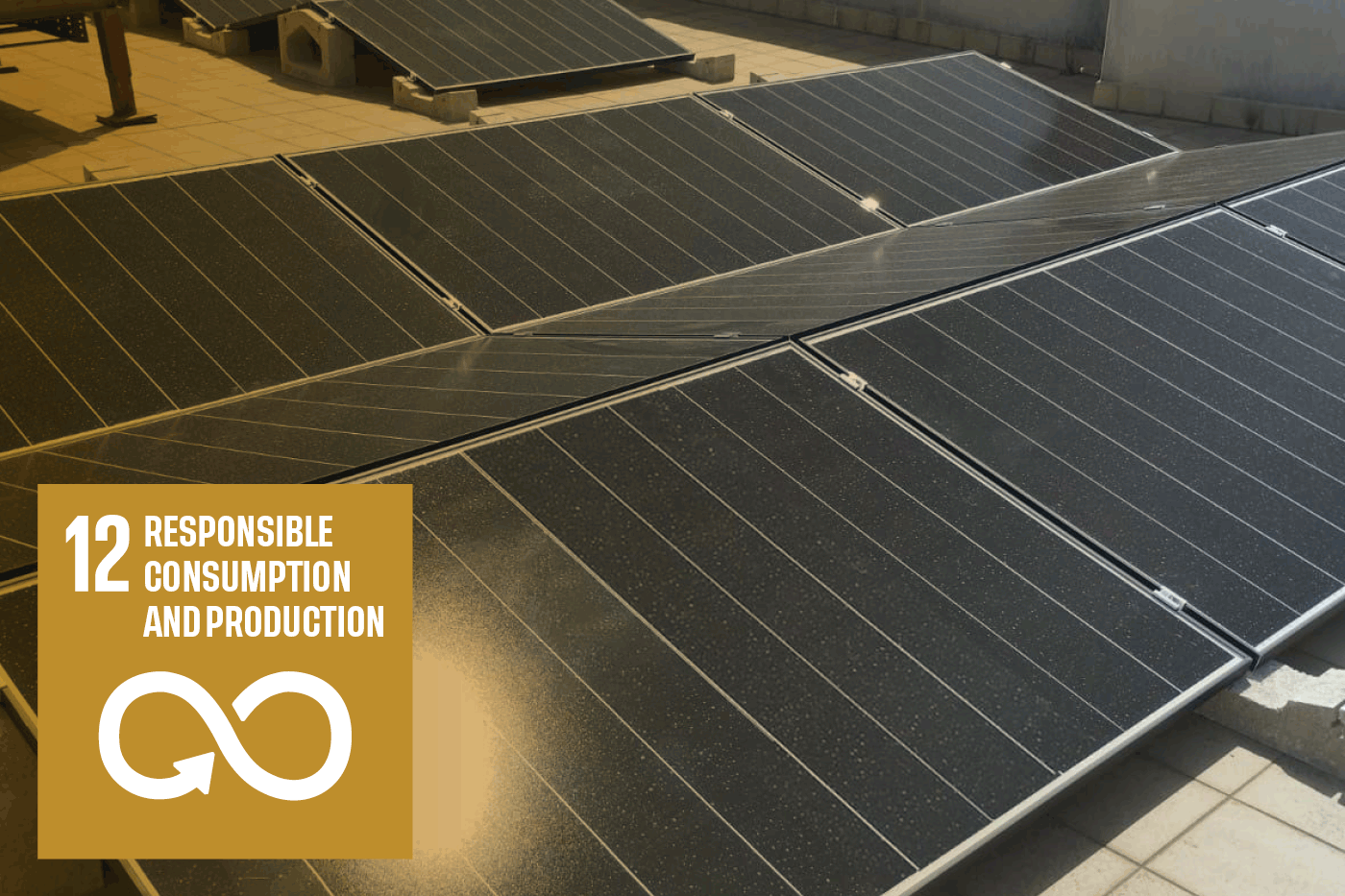
At Institut Català de Retina – ICR we have the compromise to check the protocols to select providers, taking sustainability into consideration. Furthermore, we work to generate less waste, better manage the inevitably produced and use energy coming from renewable sources.
We are progressively replacing some of the fungible products in several areas with more sustainable models. Some examples are:

First, we strive to reduce waste generation with measures such as reducing the use of paper in some processes or removing single-use plastics. Thus, we have activated the digital signature for the patient’s data protection document and we use reusable materials in common spaces for internal use.
Second, we are working on actions to raise awareness and improve the sustainable management of the waste we inevitably generate, with specific recycling points for each type of waste.
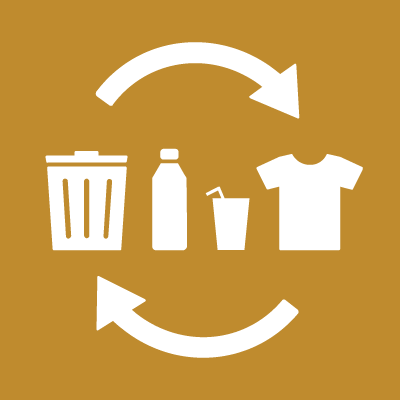
Likewise, we have containers intended solely for the recycling of toxic waste generated during the center’s surgical procedures. In addition, the number of garbage cans for general waste has been reduced, while specific containers are available in different areas to facilitate waste separation and recycling points for toners and electronic waste (printers, computers, etc.). All these measures are accompanied by communication actions, through different educational and awareness-raising materials.
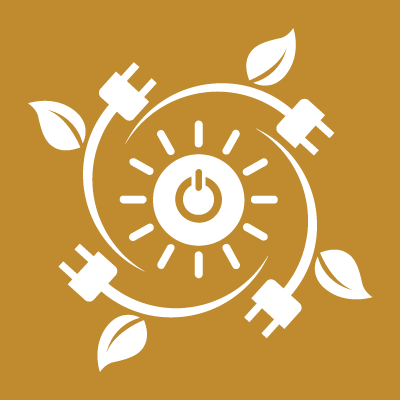
As an important step in our ecological transition, we have some solar panels in our main clinic at Ganduxer street, (Barcelona) since 2022. Besides sustainably producing energy, it allows the Emergencies Service to be almost energetically self-sustainable.
This energy that we produce avoids the emissions of 12.132,88 kg of CO2 every year, the equivalent effect to the action of 485 trees.
Contact us or request an appointment with our medical team.